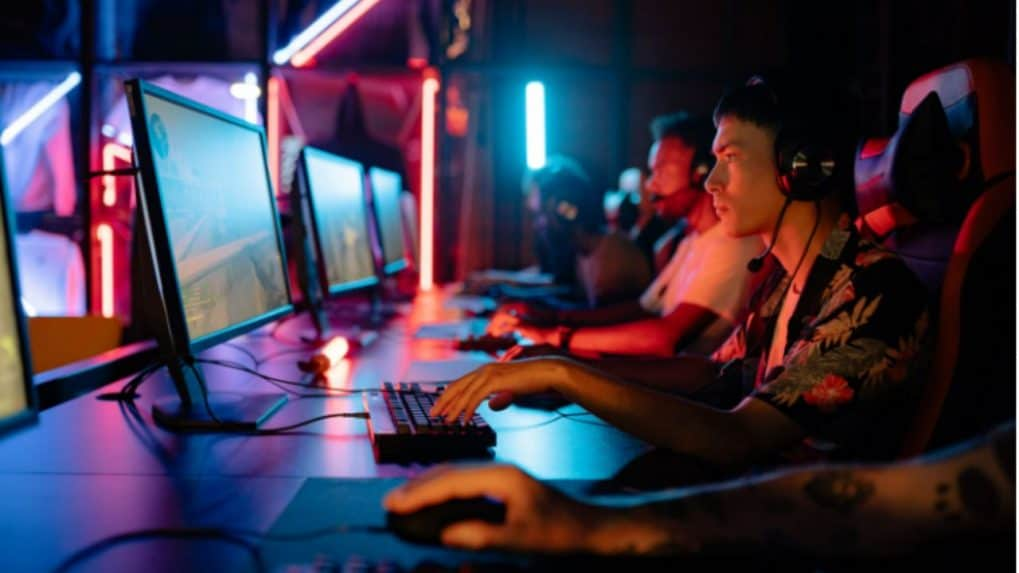Gaming industry to push for Social Games Advisory Council, clearer definition of ‘stakes’
Industry stakeholders have recommended the introduction of a safe harbour provision, making it clear that in-game purchases not offering users the opportunity to win money or convertible items should not be treated as stakes.
ADVERTISEMENT
Stakeholders in India’s gaming sector are urging the government to form a dedicated Social Games Advisory Council under the Online Gaming Authority of India (OGAI) to guide policymaking with deep industry expertise. The proposed council would include majority representation from gaming professionals, alongside support from academia and safety specialists, ensuring that regulations are informed by practical industry realities rather than administrative assumptions.
Stakeholders in India’s rapidly growing gaming sector have raised concerns over several ambiguities and gaps in the new draft rules for Online Gaming Act, warning that unclear definitions and limited incentives could hinder innovation and growth.
A central issue highlighted by industry representatives is the Act’s ambiguous definition of “other stakes,” which covers coins, tokens, credits, and virtual objects purchased within games. Experts warn that without explicit clarification, common freemium monetisation models — such as skins, battle passes, and subscriptions — could be misclassified as stakes, exposing standard, non-monetary business models to unnecessary regulatory risks.
“If skins, passes, or subscriptions are interpreted as stakes, then the entire freemium model becomes uncertain,” said a policy expert working with multiple gaming firms. “This is how most games globally sustain themselves. The government needs to clarify that purchases without a real-money prize element are not stakes.”
Industry stakeholders have recommended the introduction of a safe harbour provision, making it clear that in-game purchases not offering users the opportunity to win money or convertible items should not be treated as stakes. They argue that such a clarification is critical to prevent regulatory overreach into mainstream monetisation strategies.
Beyond the issue of stakes, the draft Act’s terminology has also been questioned. While stakeholders have accepted the term “online social games” as legally valid, many assert that it represents only a narrow portion of the broader video games ecosystem. Industry representatives suggest adopting terminology aligned with global practices to better position India’s gaming sector internationally and ensure policy consistency with worldwide standards.
“The term ‘online social games’ doesn’t reflect the entire video games ecosystem,” said a spokesperson from a gaming association. “India should use globally aligned terminology to position itself as a serious player in the international market.”
Another point of concern is the lack of government incentives for social games. While e-sports has been explicitly included in funding, tax breaks, and export promotion schemes, social games remain excluded. Stakeholders note that social games have comparable potential to drive exports, generate employment, and promote cultural content.
“Social games can generate exports, jobs, and cultural content on par with e-sports, but they’ve been left out,” said the founder of a mid-sized gaming studio. “Without tax breaks, skilling programs, or funding support, we risk stifling a large part of the creative economy.”
To address these issues, industry bodies and developers have urged the government to align India’s framework with international content standards rather than creating a parallel system. They recommend recognising compliance with Pan European Game Information (PEGI), the Entertainment Software Rating Board (ESRB), and the International Age Rating Coalition (IARC), exempting small and medium developers from onerous grievance officer requirements, clarifying the definition of stakes, and extending incentive schemes to social games.
“Policy needs to be guided by people who understand this sector deeply, not just administrators,” emphasised one stakeholder. “A balanced council can ensure that regulation encourages growth rather than creating bottlenecks.”
To further strengthen governance, stakeholders have proposed forming a Social Games Advisory Council under the Online Gaming Authority of India (OGAI), with majority representation from industry experts, supported by academia and safety specialists. They argue that this would ensure policy decisions are informed by practical industry knowledge and on-the-ground realities.
The Ministry of Electronics and Information Technology (MeitY) has invited public comments on the Promotion and Regulation of Online Gaming Act, 2025, seeking to build a structured and accountable framework for the country’s fast-growing online gaming sector. The feedback/comments on the draft rules to be submitted by 31st October, 2025.
Read More: Google, Apple and Samsung app stores to come under the ambit of Online Gaming Act
Read More: Civil court powers for Online Gaming Authority; can summon, investigate and penalise

